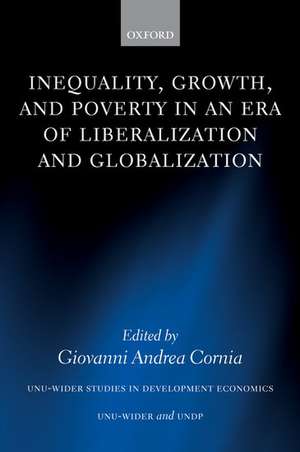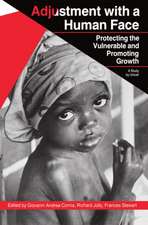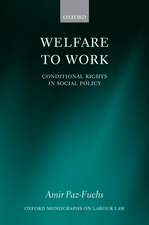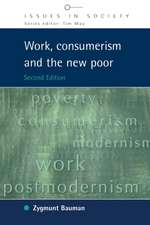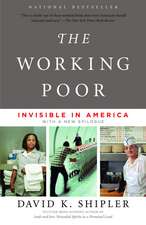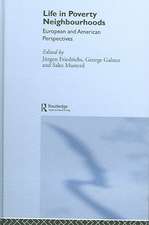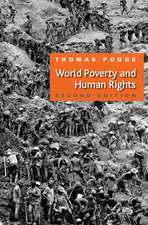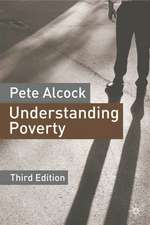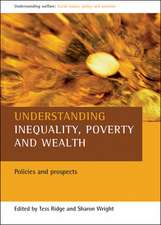Inequality, Growth, and Poverty in an Era of Liberalization and Globalization: WIDER Studies in Development Economics
Editat de Giovanni Andrea Corniaen Limba Engleză Paperback – 16 iun 2005
| Toate formatele și edițiile | Preț | Express |
|---|---|---|
| Paperback (1) | 747.92 lei 31-37 zile | |
| OUP OXFORD – 16 iun 2005 | 747.92 lei 31-37 zile | |
| Hardback (1) | 443.57 lei 31-37 zile | |
| OUP OXFORD – 18 mar 2004 | 443.57 lei 31-37 zile |
Din seria WIDER Studies in Development Economics
- 30%
 Preț: 504.34 lei
Preț: 504.34 lei - 26%
 Preț: 733.49 lei
Preț: 733.49 lei - 30%
 Preț: 597.88 lei
Preț: 597.88 lei - 17%
 Preț: 594.16 lei
Preț: 594.16 lei - 7%
 Preț: 159.68 lei
Preț: 159.68 lei - 13%
 Preț: 737.02 lei
Preț: 737.02 lei - 17%
 Preț: 583.39 lei
Preț: 583.39 lei - 28%
 Preț: 473.92 lei
Preț: 473.92 lei - 30%
 Preț: 501.49 lei
Preț: 501.49 lei - 30%
 Preț: 724.70 lei
Preț: 724.70 lei - 30%
 Preț: 748.64 lei
Preț: 748.64 lei - 31%
 Preț: 434.64 lei
Preț: 434.64 lei - 18%
 Preț: 333.97 lei
Preț: 333.97 lei - 34%
 Preț: 848.58 lei
Preț: 848.58 lei - 34%
 Preț: 848.33 lei
Preț: 848.33 lei - 34%
 Preț: 803.83 lei
Preț: 803.83 lei - 34%
 Preț: 954.23 lei
Preț: 954.23 lei - 34%
 Preț: 892.48 lei
Preț: 892.48 lei - 22%
 Preț: 188.78 lei
Preț: 188.78 lei - 30%
 Preț: 617.12 lei
Preț: 617.12 lei - 19%
 Preț: 333.48 lei
Preț: 333.48 lei - 27%
 Preț: 378.41 lei
Preț: 378.41 lei - 34%
 Preț: 1039.04 lei
Preț: 1039.04 lei - 34%
 Preț: 1043.37 lei
Preț: 1043.37 lei - 27%
 Preț: 329.58 lei
Preț: 329.58 lei - 34%
 Preț: 1291.62 lei
Preț: 1291.62 lei - 23%
 Preț: 1213.11 lei
Preț: 1213.11 lei - 34%
 Preț: 879.76 lei
Preț: 879.76 lei - 19%
 Preț: 652.65 lei
Preț: 652.65 lei - 34%
 Preț: 1039.69 lei
Preț: 1039.69 lei - 34%
 Preț: 892.84 lei
Preț: 892.84 lei - 27%
 Preț: 443.57 lei
Preț: 443.57 lei - 22%
 Preț: 526.33 lei
Preț: 526.33 lei - 30%
 Preț: 913.24 lei
Preț: 913.24 lei - 34%
 Preț: 998.62 lei
Preț: 998.62 lei - 31%
 Preț: 396.19 lei
Preț: 396.19 lei - 17%
 Preț: 413.16 lei
Preț: 413.16 lei - 34%
 Preț: 1188.77 lei
Preț: 1188.77 lei - 34%
 Preț: 817.30 lei
Preț: 817.30 lei - 30%
 Preț: 1012.76 lei
Preț: 1012.76 lei - 7%
 Preț: 360.77 lei
Preț: 360.77 lei - 31%
 Preț: 447.33 lei
Preț: 447.33 lei - 27%
 Preț: 1295.58 lei
Preț: 1295.58 lei - 31%
 Preț: 441.21 lei
Preț: 441.21 lei
Preț: 747.92 lei
Preț vechi: 954.75 lei
-22% Nou
Puncte Express: 1122
Preț estimativ în valută:
143.13€ • 155.42$ • 120.23£
143.13€ • 155.42$ • 120.23£
Carte tipărită la comandă
Livrare economică 11-17 aprilie
Preluare comenzi: 021 569.72.76
Specificații
ISBN-13: 9780199284108
ISBN-10: 0199284105
Pagini: 464
Ilustrații: numerous figures and tables
Dimensiuni: 158 x 234 x 26 mm
Greutate: 0.71 kg
Editura: OUP OXFORD
Colecția OUP Oxford
Seria WIDER Studies in Development Economics
Locul publicării:Oxford, United Kingdom
ISBN-10: 0199284105
Pagini: 464
Ilustrații: numerous figures and tables
Dimensiuni: 158 x 234 x 26 mm
Greutate: 0.71 kg
Editura: OUP OXFORD
Colecția OUP Oxford
Seria WIDER Studies in Development Economics
Locul publicării:Oxford, United Kingdom
Recenzii
'..essential reading for anyone concerned with poverty reduction and the impact of current policy reforms'
'...a valuable contribution to the important but still very limited body of serious analysis on the enormously important question of how liberalization and globalization affect people though their growth, distribution and poverty impacts. The volume addresses most of the key issues and, through the material it adds to the ongoing debates, will help to shift the balance of considered opinion away from the overoptimistic predictions of some of the cheer-leaders for liberalization and globalization to a more plausible middle ground. Such a shift is essential if these phenomena are to be appropriately controlled and harnessed for human betterment.'
"This book is a well-researched, energetic and analytically adept multi-authored volume..."
"Together they make a valuable collection of papers on linkages between inequality and/or trade with growth and/or povertyresearchers will find much of value in the volumes, and research students will find the reviews, methods and case studies informative and useful."
'...a valuable contribution to the important but still very limited body of serious analysis on the enormously important question of how liberalization and globalization affect people though their growth, distribution and poverty impacts. The volume addresses most of the key issues and, through the material it adds to the ongoing debates, will help to shift the balance of considered opinion away from the overoptimistic predictions of some of the cheer-leaders for liberalization and globalization to a more plausible middle ground. Such a shift is essential if these phenomena are to be appropriately controlled and harnessed for human betterment.'
"This book is a well-researched, energetic and analytically adept multi-authored volume..."
"Together they make a valuable collection of papers on linkages between inequality and/or trade with growth and/or povertyresearchers will find much of value in the volumes, and research students will find the reviews, methods and case studies informative and useful."
Notă biografică
Giovanni Andrea Cornia is currently professor of economics at the University of Florence. Before this, he was the Director of the World Institute for Development Economics Research (UNU/WIDER) in Helsinki (1995-2000), and Director of the Economic and Social Policy Research Programme at the International Child Development Centre (the world-wide research centre of UNICEF) in Florence (1989-95). He was also the Chief Economist at UNICEF Headquarters in New York (1981-89) and held research positions at UNCTAD, UNECE (with a long spell at ECLAC in Santiago) and the Economic Studies Centre of FIAT.
